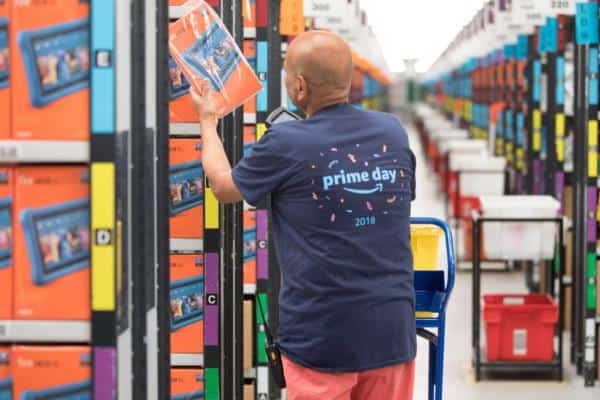Grocers and supply chain professionals have this week sounded the alarm once more about what a Hallowe’en no deal Brexit falling just before peak trading could mean in practice.
Both Tesco and Sainsbury’s this week warned of the uncertainty surrounding the kind of deal or no deal October 31 exit from the European Union that both candidates to be the UK’s next Prime Minister – Jeremy Hunt and Boris Johnson – have promised.
The deadline presents a particular challenge for retailers, who are already preparing for Black Friday, and peak pre-Christmas trading – especially online. Black Friday this year falls less than a month later than a no-deal exit, on Friday November 29, and, if patterns from previous years are a guide, many retailers may well start discounting earlier than that.
Dave Lewis, chief executive of Tesco, this week told the BBC that it would not be as straightforward to build stocks of long-life products at the end of October as it was in March.
“It will be more difficult to do that in October because all of the network will be full of things getting ready for Christmas so there’ll be less capacity, but we’ll do whatever is practicable, depending on how things develop between now and then,” said Lewis He added: “Whether it’s a deal or no deal, the devil is in the detail. What will it mean for the movement of produce, will there be tariffs, will there be hold ups at the border? We’ll just have to wait and see. I don’t think you can worry about it because it’s not directly in your control. We just have to prepare for it. We’ll do the best thing – whatever the changes are we’ll do whatever we to help our customers through it and try to safeguard our customers as we go through the change.”
Meanwhile, Sainsbury’s chief executive Mike Coupe is reported to have said that October 31 was “not far off the worst day possible” for retailers because warehouses would already be full ahead of Christmas.
Space shortages
Space is the key reason that there’s more uncertainty around a no deal Brexit in October than in March. Warehousing space that would be needed in order to store stockpiles of goods is already full, according to UKWA chief executive Peter Ward. “There is no available space,” said Ward, speaking on BBC Newsnight and citing figures from property agent Savills. “The market, as represented by our members is virtually at capacity. The biggest concerns at the moment is that the October deadline comes right bang in the middle of peak season. From a timing point of view, it couldn’t be worse.” He added: “You can’t just turn on supply. Putting real estate in the system takes five to seven years. I can’t see any increase in supply in October relative to March.”
Slimane Allab, general manager and SVP at global supply chain design company Llamasoft agrees. Allab says the uncertainty around a no deal outcome on October 31 could result in “severe supply chain disruption”. Limited goods transport permits could see the borders clogged, while businesses are likely to see the cost of services rise while continuity is hit.
“Businesses,” said Allab, need to prepare for potential hurdles in their supply chains by exploring how every possible scenario will impact the supply chain and exploring alternative supply routes and supply chain models. Digital twinning is a way of achieving this, allowing companies to accurately evaluate the impact of changes to existing systems and processes without creating real world, real time disruption.”
Image: Fotolia








